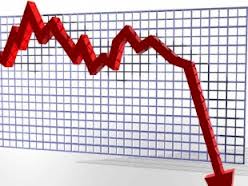The following Investment Analysis by analyst George Bodo appeared first on the Business Daily.
“It looks like profit warnings by listed companies will be more this year. This month alone, three listed companies namely, TPS Eastern Africa, Crown Paints and Pan Africa Insurance Holdings have issued profit alerts in quick succession. TPS and Crown Paints have both cited difficult operating environments in their markets while Pan Africa Insurance Holdings point at failure to replicate the exceptional earnings it recorded in 2013 (mainly through mark-to-market gains and property sales).
Between 2012 and now, 23 listed companies have issued profit warnings, out of which four companies have issued warnings more than once.
These are Kenya Airways (in 2012 and 2014), Mumias Sugar Company (in 2013 and 2014), Express Kenya (2012 and 2014) and KenolKobil (2012 and 2013).
In the same period, the highest number of profit warnings was recorded in 2012 and 2014, with seven warnings issued in each of the two years.
Generally, profit warnings can be attributable to micro and macro events wherein the former refers to company-specific variables while the latter refers to economic and operating environment.
Out of the 23 warnings issued, 16 cases have been primarily driven by adverse macro-economic factors while only seven cases are attributable to one-off company specific factors.
There are five outstanding adverse macro-economic factors that have directly contributed to the surge in profit warnings.
First, high interest rates that has direct bearing on borrowing costs for companies (as cited in the profit warnings issued by KenolKobil, EABL, EA Portland Cement).
Second, the significant depreciation of the Kenya shilling against major world currencies that has resulted in higher cost of doing business (as depicted in warning issuances by KenolKobil in 2012 and 2013 citing losses incurred in its forex hedging activities and East African Portland Cement in 2014 citing increased cost of servicing foreign currency debts).
Third, the decline in global soft commodity prices especially tea and sugar (as depicted in the issuances by Kakuzi in 2012 and 2013 Kapchorua Tea in 2014, all citing declining global tea prices.
Additionally, Mumias Sugar in its February 2013 profit warning cited the fact that 2012 sugar prices declined by 30 percent.
Fourth, domestic insecurity situation that has resulted in issuance of travel advisories (as cited by Kenya Airways in 2014 and TPS Eastern Africa in February 2015).
Finally, the geopolitical situations globally as cited by Kenya Airways in its January 2012 profit warning (citing political unrests in Egypt and Nigeria at the time).
With the exception of global soft commodity prices, it’s not likely that some of these key factors will abate in 2015.
Government’s continued huge presence in the debt markets will still see borrowing costs remain elevated; additionally, the shilling performance against US dollar is expected to remain sideways while geopolitical risks still lurk. Consequently, profit warnings by listed companies may surge in 2015 and will require policy intervention especially in easing domestic macro-economic conditions. However, investors should generally look beyond the profit warnings and have long-term goals as some of these variables tend to be temporary and cyclical.”








